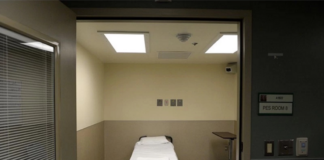Tag: mental illness
The Poetics and Politics of Our Mental Health Metaphors: An Interview...
Ayurdhi Dhar interviews influential cultural psychiatrist Laurence Kirmayer on how metaphors, histories, and social structures contour our experiences of suffering and healing.
Kenneth Kendler: “Implausible” That Psychiatric Diagnoses Even “Approximately True”
In JAMA Psychiatry, prominent psychiatrist Kenneth Kendler writes that psychiatric diagnoses are “working hypotheses, subject to change.”
New Research Questions Safety of Esketamine for Depression
An analysis of FDA adverse event reports related to esketamine shows the potential for negative effects such as suicidal and self-injurious ideation.
Identity, Oppression, and the Culture of “The Mentally Ill”
A "mental illness culture" means that full time work is seen as impossible and discouraged, and your social world only consists of other mental health "consumers" and mental health workers.
Is COVID-19 Making Everybody Crazy?
The response to the pandemic promises a vast expansion of the market for therapists, but such claims carry great potential for harm, adding to the burdens of people with upsetting but understandable, deeply human feelings.
Is It Time to Rethink Mental Illness in Light of the...
Now that so many are experiencing distress because of the coronavirus, can we not appreciate that many who have been labeled mentally ill have long experienced these kinds of hardships?
Please Stop Saying Depression Is Like Diabetes
It seems more and more common for people who consider themselves mental health advocates to make the argument that “mental illness is like physical illness.” Have you heard this “depression is like diabetes” tactic? I have a hard time seeing how this is advocating for those in emotional distress.
Psychiatry Needs a New Metaphor
The metaphor of “mental disease” is doing more harm than good. Rather than being a tool for communication, it has crossed the boundary from a metaphor to a theory that underpins much of what happens within public mental health services. This places psychiatrists in a position of dutiful compliance with what is essentially a fallacious model.
Dehumanization Linked to Poorer Mental and Physical Health
A new review finds that dehumanizing language, including self-dehumanization, is connected to anxiety, depression, and disordered eating.
A Social Psychiatry Manifesto that Takes Social Context Seriously
A re-visioned approach to social psychiatry aims to understand the broad influence of social life on mental health.
“Please Be Normal!” My Experience Working for NAMI
At my job with a NAMI affiliate, I heard daily from people who looked at family members with “mental illness” as non-people, non-human, the “other.” In the office, it was no different. If NAMI had a tagline, it would be “Please be normal like us.”
Belgian Guidelines Recommend “DSM Categories Not be at the Centre of...
The Superior Health Council of Belgium documents numerous problems with the evidence base in the manuals used to diagnose “mental illness” and cautions against their use.
Training Program Decreases Police Force and Arrests for Mental Health Crisis...
Colorado police trained in crisis intervention infrequently use force or arrest individuals experiencing a mental health crisis and are likely to transfer individuals to a treatment facility.
Reducing Antipsychotic Use May Improve Health for People with Mental Health...
A new study offers radical solutions for improving the cardiovascular health of people with mental health diagnoses: reducing antipsychotic prescriptions..
Patients on Antipsychotics at High Risk for Cardiovascular Issues, Study Finds
Antipsychotics present a known risk for major side effects. A new study suggests that certain antipsychotics may present a greater risk for cardiovascular disease than others.
David Healy: Making Medicine Safer for All
Doctor David Healy from Bangor University in Wales talks about prescribing practice, medicine safety and pharmaceutical regulation.
You are not Mentally Ill
In this piece for Medium, Brendan O'Neill critiques campaigns that aim to de-stigmatize "mental illness" and the trend toward identifying as "mentally ill."
"The problem here...
Trump and the Diagnosis Free-for-All
It would seem that who is 'mentally ill' is a movable target (much more so than, say, the cancer or diabetes to which it is often compared), sometimes based on convenience and strategy. If you hold enough power, you can decide who's sick, provided they don't have enough leverage to outdo you at your own game.
Scapegoating: Why Humanity Desperately Needs Hope to Cling to
How convenient to be able to deposit all our hatred, anger, fear, and worry into a pail that looks different and believes in stuff we don't understand. Or better yet, to be able to throw all of our sorrow, hatred, and pain into an abstract bin organized by the greatest piece of trash: the Diagnostic and Statistical Manual (DSM).
“Can Poverty Lead To Mental Illness?”
For WBUR, Emily Sohn asks: “Can poverty really cause mental illness?” “It's a complex question that is fairly new to science. Despite high rates...
The Helping Room
Every culture has its share of individuals who break down in bewilderment. People who hallucinate, behave beyond norms, seek to die, think in strange ways.
The Mental Health Reform Act of 2016 (SB 2680) Would Be...
There is indeed a crisis in the mental health business. The crisis derives from psychiatry's spurious and self-serving premise that all significant problems of thinking, feeling, and/or behaving are brain illnesses that are correctable by psychiatric drugs.
Dear Boston Globe, Part IV: A Taste of Your Own Medicine
The Boston Globe paints a picture (in the vivid way that they so love to do) that pins the system’s decline primarily on budgetary issues, but there is more than one way for a system to be ‘broken.’ In fact, where the Globe goes most wrong in their latest piece, ‘Community Care,’ is in their failure to adequately recognize that the system has always been broken in one way or another in this country.
A Diluted Murphy Bill Clears the House and Goes to the...
Organized psychiatry, committed irrevocably and wholeheartedly to drug pushing and to their corrupt and corrupting relationship with pharma, simply will not countenance the fact that their primary product is fundamentally flawed and destructive. So they hire a PR company; they fund and lobby politicians; they parrot slogans; and they encourage one another to ever-increasing heights of self-congratulation. But they will not commission a definitive study to clarify and assess the scale of this problem once and for all. And the reason for this inaction is because they know that it would be bad for business. It would "cause a lot of people to stop taking their medications."
The Murphy Bill, HR 2646 — a Heinous Piece of Legislation...
The National Coalition for Mental Health Recovery is calling upon all people of like minds, who care about individuals who need mental health services, to ACT. It is urgent. Please call your representative in the House of Representatives to vigorously oppose HR 2646 on Tuesday, July 5, 2016. And, call your Senator to insist that the Senate reject any amendments or changes to mental health legislation from the House by Friday, July 8, 2016. For more information about this Call to Action, please click here.































